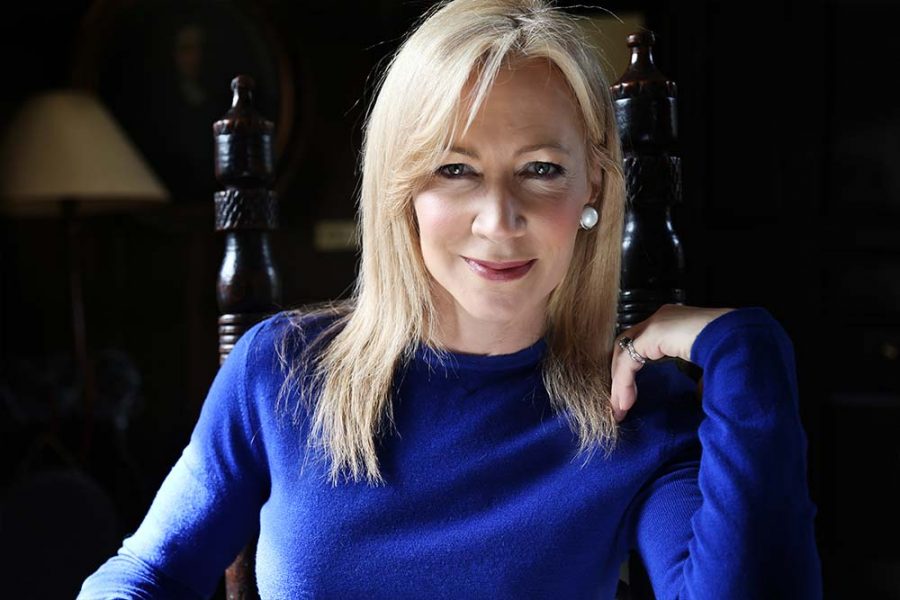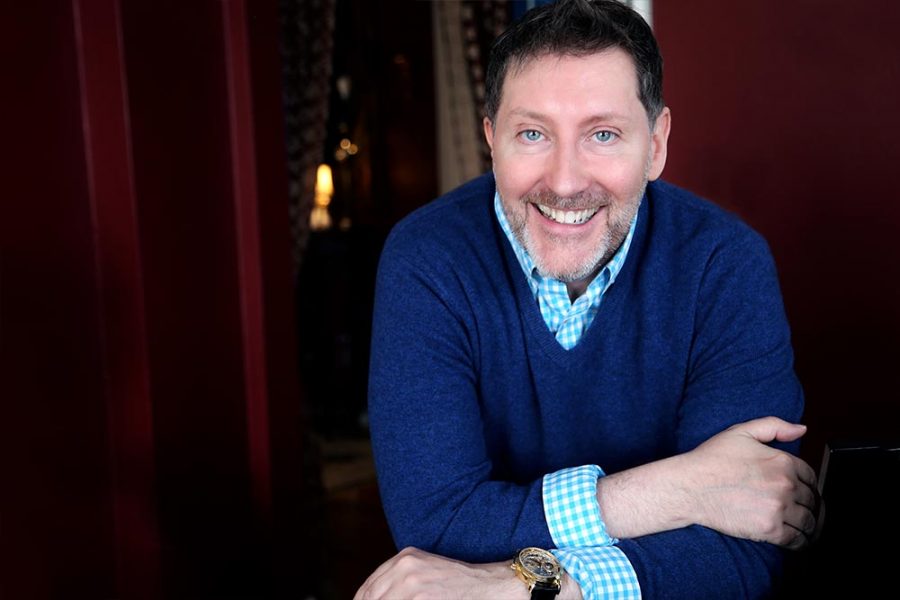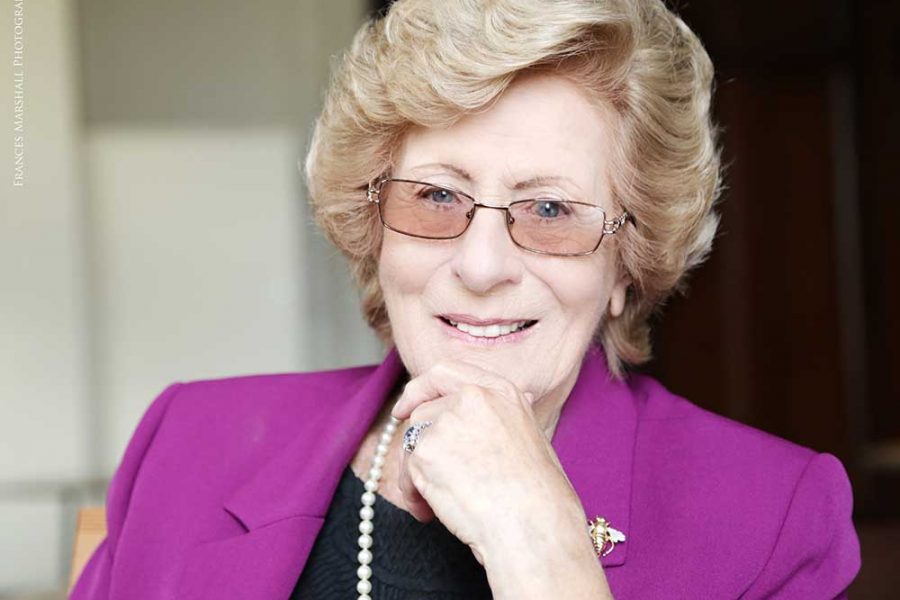Principal Perspectives: Professor Jonathan Freeman-Attwood

October 2015
Words by
Emer Nestor
Photos by
Frances Marshall
As one of Britain’s oldest conservatoires, the Royal Academy of Music has maintained an association with musical excellence since its foundation in 1822.
Amongst the school’s most illustrious alumni are names such as Sir Arthur Sullivan, Sir John Barbirolli, Dame Myra Hess, Sir John Tavener, Sir Harrison Birtwistle, Lesley Garrett, Sir Simon Rattle, Dame Felicity Lott, Michael Nyman, Sir Elton John and Annie Lennox, to name but a paltry few. At the helm of the Academy sits the incomparable Principal, Professor Jonathan Freeman-Attwood — a notable performer, writer, broadcaster and producer in his own right. He kindly met with Final Note to discuss his path to the RAM, the changing face of education within the humanities, the Academy’s relationship with various collaborators and his own accomplishments within the world of classical music.
Surprises can start to appear if you retain belief in your talents, a constant willingness to learn and you take your various opportunities when they arise..."

Your grandfather, General Harold Augustus Freeman-Attwood, and father, Major Harold Warren Freeman-Attwood, were distinguished members of the British Army — were you ever enticed into that world or was a career in music always on the cards?
The closest I got to the army was Lance Corporal in the School Corps and was noted for being spectacularly inept, insubordinate and generally uninterested. So, no, it never crossed my mind that I would join the Guards like several members of the family had in previous generations. In fact, there are a couple of academics way back to balance things out…and in a less direct branch there’s even a musician — Thomas Attwood, who studied with Mozart, and made him coffee and played billiards with him in 1780s Vienna. He became organist of St Paul’s Cathedral. I’ve heard from the present incumbent, with whom I often work, that Attwood’s music has been permanently expunged from their repertoire — shame!
How did you make your way into the hallowed halls of the RAM?
Like so many things in life, I came in as a last-minute replacement to do some equivalent of ‘supply teaching’ just after I finished my postgraduate at Oxford. People often assume when you’re in my position that you were always cut out or destined for that particular role and that all the stars are lined up in a kind of pre-determined constellation. Nothing could be further from the truth! I take some pleasure when I talk to students about ‘professional development’ that most careers begin slowly, at best steadily, and you just follow your muse. Surprises can start to appear if you retain belief in your talents, a constant willingness to learn and you take your various opportunities when they arise — within the broad professional and creative aims you’ve identified for yourself.
I think I was very lucky in having a rigorous and complementary training in both North America (Toronto) and Britain (Christ Church Oxford) which gave me a confidence to pursue performance and academic interests in parallel, at a time when musical higher education in the late 1980s was still pretty polarised and black and white in what the conservatoire and university worlds represented. In 1990 I was invited by the then Principal, Sir David Lumsden, to become Dean of the new BMus Honours programme in performance under the aegis of King’s College London. The timing couldn’t have been better and it gave me the chance to mould a programme, which engaged with performance as a degree-worthy discipline, whilst placing relevant intellectual enquiry at the heart of the creative process. I think the culture changed very fast, despite some horrific timetable pile-ups (!), but this opportunity gave me a real initiation in the challenges of acknowledging the needs of high-level performance within the broader narrative of a fulfilling student experience.
Do you think that your perceptions of the RAM and the world of classical music have altered in any way since your appointment as Principal in 2008?
Vastly. When I was first employed in 1988, the music industry was buoyant, largely unquestioning and there was an assumption that music was somehow a ‘birth right’ for everyone and that, other than a bit of tweaking, it would roll on being what it had been for generations. In the mid-90s the decline of the record industry became a massive emblem of change, attitudes, economic reality and fast-changing professional landscapes.
It may sound odd but I sensed, especially when I took over as Principal, how the breaking up of the old order had actually brought vital new energy and spark to the creative life of classical music. There is far less complacency and mediocrity at the heart of professional life than there was — although you could argue that interpretative values are becoming increasingly standardised, but that’s a different discussion! In the bigger picture, I do fear that without the necessarily invigorating support of public and private funders, the UK could soon slip from its position as one of, if not ‘the’, most important, varied and thrilling hubs of classical music in the world. If the artistic quality and imagination of Academy students and recent alumni is anything to go by, then I’m exceedingly hopeful because some of these young people are quite brilliant trend-setters, persuasive and communicative creators who are re-shaping the classical music environment.
Education has become a more self-conscious business of learning. How do you reconcile Arts and Commerce within your aesthetic?
The manner in which education is articulated within the humanities in general has changed hugely in the last 20 years. Whatever we think about the various regimes of higher education fees, if there is an upside it’s that educators now have to give value for money and constantly address ‘added value’ or else they wither and die. You are obliged to tell people what they’re paying for, deliver it and be prepared to listen and review as necessary. I relish the challenge that the Royal Academy is measured daily on the quality of its teaching, the quality of teachers, the programmes of study, the facilities in which we work…and then after that come all the supporting elements which contribute to the richness of content which fires the imagination. This is where research, collaboration, often across all the arts — and a bold connection with commercial activities within the cultural industries — become key drivers of success in the vocational sense. The extent to which these elements affect the ‘aesthetics’ of your education, or indeed musical accomplishment, is harder to gauge.
The value of studying music at primary and secondary level is still largely misunderstood across the world, with several governments scrapping vital music programmes and under funding departments — how can we revitalize interest in classical music?
This whole area of early access to music is constantly tantalising. There’s so much great work happening all over the world in various pockets, but there rarely seems to be the coherence or momentum to find a unified and widely accepted model of generating music education throughout primary and secondary education. There are many complex social reasons why music gets squeezed out. We all know that schools are measured by their ability to get results in the core subjects, which give them respectable positions in the various league tables. Music therefore becomes a ‘bolt-on’ in all but the most enlightened schools and these bolt-ons then need to be financed, and are generally only accessible to people with money. So, by the law of averages, you miss the largest proportion of people in the world who have that ability to explore their musical talent if given the opportunities to do so. Also, let’s not kid ourselves that the craft and discipline of music is anything but very hard to comprehend and master, as well as time-consuming — and with so many distractions these days, the conditions have to be just right in a number of key areas for someone to develop musically and to keep engaged.
The separate question is how classical music fits in our crowded world, along with the preoccupation of how human beings seem increasingly unable to concentrate for long periods on any one thing. When was the last time you sat at home and listened to a piece of music for 20 minutes without looking at your phone? If you place all these cultural elements together, the result inevitably lies in the domain of a decreasing number of people equipped as listeners, let alone learners and practitioners. My view is that we should stop thinking about classical music as some ring-fenced cultural arena but as a part of a bigger, fast-evolving repository of sound worlds, which can happily join an ever-more diverse assembly of traditions and activities. Students these days don’t regard a love of Schumann as meaning that they can’t experience all forms of contemporary musical life — whether you call it ‘pop’ or ‘classical’ or any of the far better terms, which actually meansomething and refer specifically to the time, idiomatic features or provenance of the music in question.

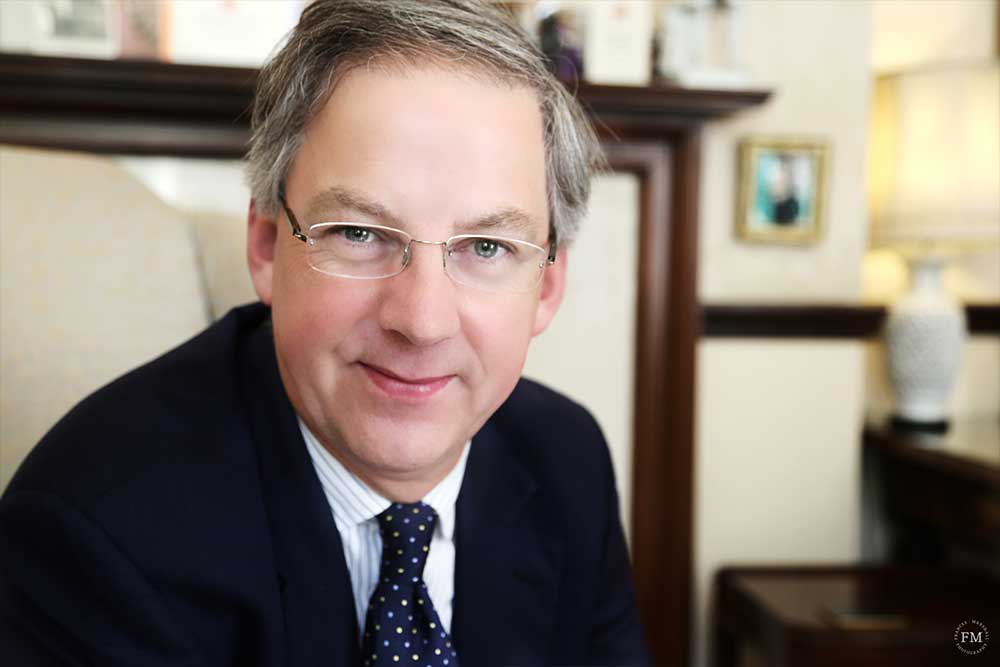


I suppose I've always felt a certain frustration that the classical trumpet has so little good music written by all the composers I love!"

Tell us about the RAM’s relationship with the Kohn Foundation.
Most of the Academy’s funding streams are from fairly consistent and predicable sources — a blend of public funding, fee income, endowment and bursaries and scholarships raised through our Development effort. The relationship with the Kohn Foundation is remarkable and at its heart lies the wonderful story of Sir Ralph Kohn and his passion for J.S. Bach. As it happens, as a writer and critic for Gramophone, BBC Radio 3 and so on, I have had quite a lot to do with Bach over the last 20 or so years. Sir Ralph and I cooked up a plan to perform all the Bach Cantatas over a 10-year period. We’re nearly at the end of the seventh year with 160 cantatas performed and it has become a true box office hit! To be honest, whilst I loved the idea, I thought it was far too complex and difficult in the context of all the other student obligations.
Thanks to the Kohn Foundation funding, it has meant that we can engage students on a professional basis (keeping students out of Sunday church jobs!) and we now have a wonderful roster of Kohn scholars, many of them leading young singers from all over the world. It really is an astonishing addition to our diary of events. Last week I heard BWV 51 — that most joyful virtuoso piece for soprano — it was as good as any I have heard anywhere. It has also been a vehicle for the Academy to introduce a number of leading Bach conductors such as Sir John Eliot Gardiner, John Butt, and Masaaki Suzuki — with whom we have recently been working in a major tour with our American partners, the Juilliard School.
How is the RAM keeping up with the ever-evolving needs of the classical musician of the twenty-first century?
This is really our meat and drink. If our programmes of study aren’t fulfilling the needs of our students in specifically relevant ways then our raison d’être is seriously compromised. This is as true for our jazz and musical theatre students as for those following more classical careers. This operates on many different levels, most notably through the benefits of the ‘master-apprentice’ one-to-one teaching that all of our students enjoy. All the musical and related expectations are rooted in this crucial relationship. And then, of course, our programmes of study go through periodic reviews in which we assess the relevance and importance of individual components. Sometimes it’s quite controversial and things get a bit heated…. Last, but not least, I am committed to exposing our students to the very best international musicians and I am deeply proud of our regular visitors who exemplify the heights of the profession as instrumentalists, singers, conductors and composers. They represent some true friends of the Academy. There aren’t many weeks where we don’t have a cluster of household names working in close quarters with our students. There was a time last term when we had a week with Semyon Bychkov, just after he had finished his tour with the Chicago Symphony Orchestra, rehearsing next door to Miles Davis’ bass player, whilst Trevor Pinnock was rehearsing our students for an upcoming commercial recording, and that didn’t take into account the two principals and ex-students from the Concertgebouw giving master-classes. These people are able to tell us honestly, from visit to visit, whether or not we’re doing the right things and how closely they relate to the needs of the profession.
As a trumpeter why did you feel the need to ‘reimagine’ the instrument’s traditional identity within the environs of chamber music?
I suppose I’ve always felt a certain frustration that the classical trumpet has so little good music written by all the composers I love! I then set myself the task of thinking ‘what if’ composers of the great canon had written sonatas for trumpet and piano. As a result, Linn have given me a wonderful opportunity to record 7 discs, so far, of new repertoire (most of it is being published by Resonata) and presents interpretative challenges that solo trumpet music has not always encouraged. The other point of doing it is purely a matter of keeping my creative juices flowing and setting myself challenges. These are the things that keep me sane and exploit the kind of technical and musical parameters to which I feel best suited. I prefer the small-scale fiddly stuff to the symphonic, which in any case everyone does better….
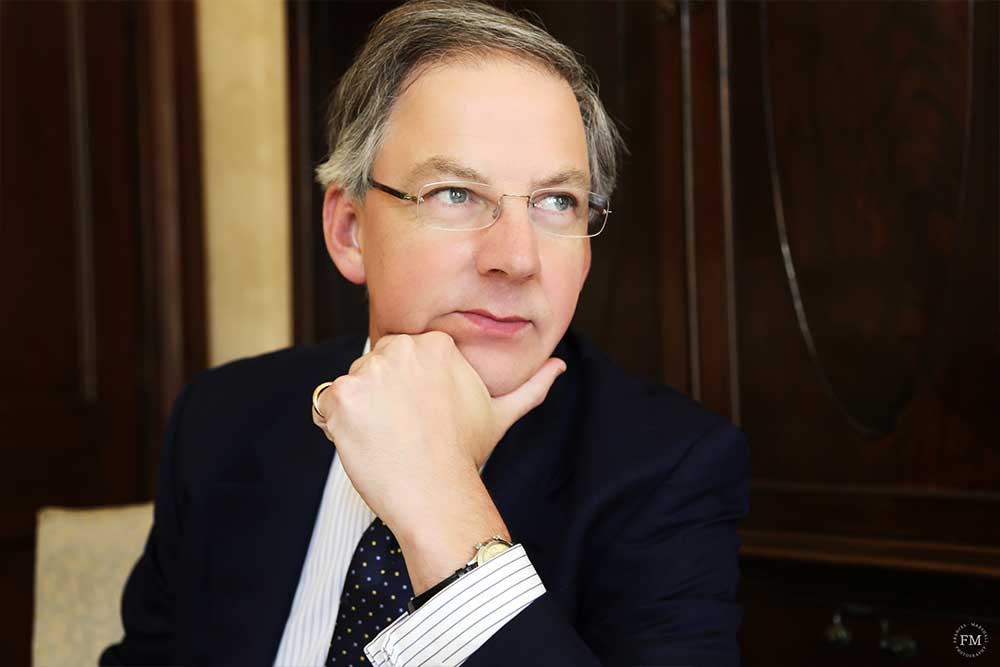


How did the world-premiere recording of Fauré’s Lydia’s Vocalises come into being?
Dr Roy Howat, a world-renowned luminary of French music as both scholar and pianist, published the Fauré Lydia’s Vocalises for Peters Edition. They are astonishing little vignettes which the composer wrote while he was director of the Paris Conservatoire — though ostensibly sight-reading pieces. Being Fauré, they are full of the melodic charm of his Mélodies. Roy and I tried them out and it became clear that they sat wonderfully within a kind of cornet ‘salon’ tradition. This encouraged me to apply a set of Baudelaire-like conceits to the groups of around 40 short pieces, helped by my Francophile daughter. They have been tremendously well received.
Are you especially fond of any recording in particular so far, and are there plans afoot to perform any new repertoire?
The first Linn record was called The Trumpets that Time Forgot and the main piece on it was a huge 40-minute suite for violin cello and organ by Rheinberger, with John Wallace and Colm Carey. I played the violin part on the piccolo trumpet and John played the cello on a very loud B-flat trumpet. There was something wonderfully Gothic about playing this tempestuous German romantic repertoire in Hereford Cathedral in the middle of the night, with Colm making the Willis organ sound like a barely-tamed lion. So, that was a favourite. Regarding my collaborations with my superb accomplice Daniel-Ben Pienaar, A Bach Notebook perhaps constitutes the greatest labour of love. We ‘work-shopped’ these 10 members of the Bach family over a couple of years and D-BP made some astonishing arrangements. Needless to say, because of the nature of the Bach family, this disc has quite a lot of notes! It really was a case of my playing the last piece at the end of the third day with about 5 minutes of gas left in the tank…lips turning blue with fatigue and bruising. Future plans include an English collection to be recorded in 2017 and then something really crazy in 2019 if things work out…I have to keep quiet for now because I don’t want someone else to do it first!
What drew you into the field of record producing?
I think producing is an area, creatively, for which I feel quite well suited, mainly because I truly believe in the art of recording as something which allows for important and exceptional artistic results — quite distinctive from live performance but no less ‘live’ if conducted imaginatively and responsibly. People often ask how to summarise the role of a producer. For me, it’s a strange alchemy of directing proceedings, as the representative of a record company, identifying with the artistic requirements of the performers and enabling them to do their best on every ‘take’, through the advice and encouragement I can give. I’m usually a pretty lousy multi-tasker but recording is one where aural memory, practical controls and on-going communication can co-exist quite nicely. I started with various choral projects in Oxford and gradually found myself working with some great people, including Rachel Podger, Trevor Pinnock, Phantasm, Cardinall’s Musick etc…and, next week, I’m moonlighting in a lovely Couperin project with Lucy Crowe, Elizabeth Watts and David Bates’s La Nuova Musica. Those two singers are amongst the very best this country has ever produced in my view.
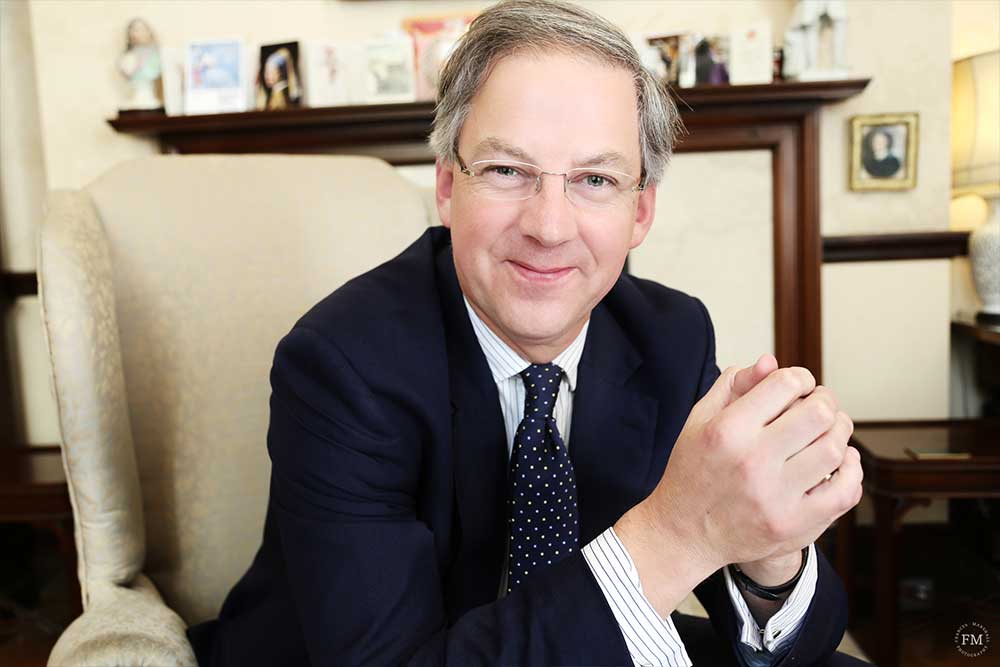

Having garnered much success in a variety of roles including those of administrator, lecturer, performer, writer and producer, is there anything left to conquer?
I am just really a ‘jack’ of a few trades who happens to have landed on some wonderful opportunities. Apart from the 24-hour commitment to the Academy, the key is to keep all the parts of your being directed towards the creative — and like all things, they need practice. For instance, if I haven’t produced a recording for a couple of months, it takes me a bit of time to warm into it (which is fine because engineers are notoriously slow at getting the required sound!). And, I suppose, as a bit of a workaholic, I tend to say, “yes”, if it’s something I want to do.
What are your hopes for the RAM going forward?
I can either answer this in 5000 words or 50 and you will be relieved to hear it’s the latter. I would like it to continue to be a top ‘conservatoire of choice’ for musicians who have ideals and ambitions and are willing to work hard and take risks. We’re just building a wonderful new theatre and small recital hall above it, and I am hoping that this will be the start of other great things to come.
All images displayed in this article are subject to copyright.
Share this article


